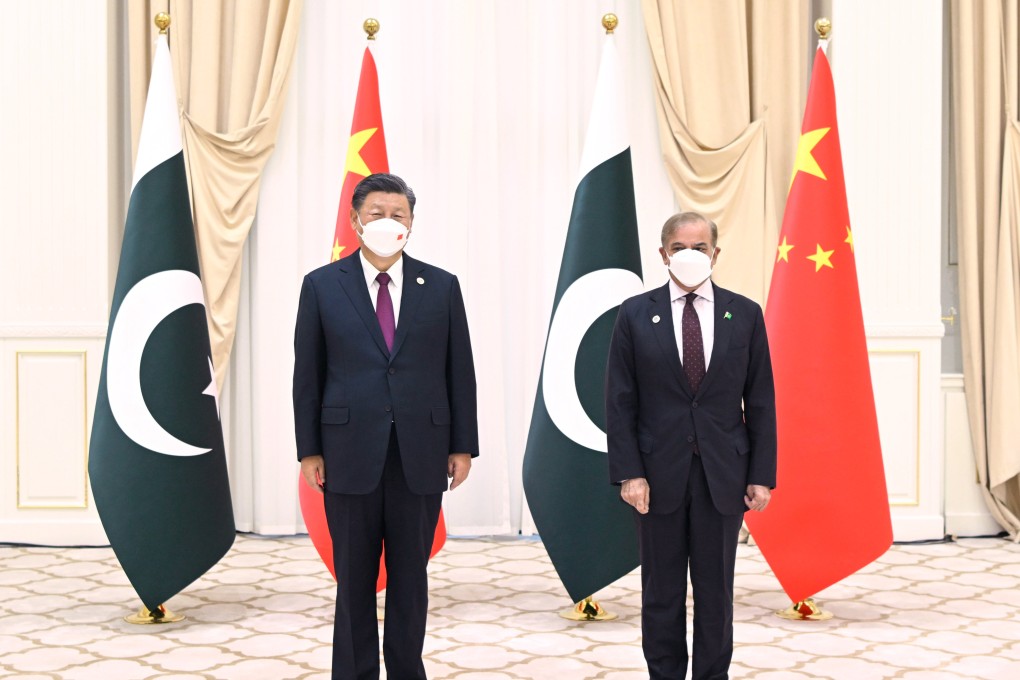Will Pakistan’s ‘all-weather’ friend China offer yet more cash for development amid political turbulence?
- Pakistan’s PM Shehbaz Sharif is beginning two-day trip to Beijing, keen for more money to help nation deal with flood-ravaged economy
- But experts say while China has helped Pakistan to develop, there are concerns over who’s in charge in Islamabad, and terrorism attacks

Pakistan’s Prime Minister Shehbaz Sharif is hoping during his two-day visit to Beijing that long-standing “all-weather friend” China will agree to plough billions more dollars into his country’s flood-ravaged economy, after Islamabad’s Western lenders refused its entreaties.
But Sharif’s hosts will have one eye on a protest march to Islamabad led by his deposed predecessor Imran Khan, which many fear could descend into destabilising violence if Pakistan’s government and powerful military-led establishment do not agree to call a snap general election.
“The Chinese government likes Shehbaz Sharif personally and a number of the other figures in this government, and will generally want to do them some favours, but they are not certain in the medium term who will be running things,” said Andrew Small from the Asia programme of the German Marshall Fund, a Washington-based think tank.
Political turbulence in Pakistan since 2017 has made China “less certain” about whether some of its long-term economic bets will “pay off if there aren’t governments that can sustain their commitments or a really solid political consensus behind these investments,” he added.
Since taking office in April, Sharif has prioritised the revival of the estimated US$62 billion China-Pakistan Economic Corridor (CPEC), a Belt and Initiative programme connecting Xinjiang province to Pakistan’s Arabian Sea port of Gwadar.
Sharif hopes his coalition government’s efforts to fast-track the completion of lagging CPEC projects and target militant separatists who have carried out lethal attacks against Chinese nationals have been enough to persuade Beijing to pay huge amounts for mass transit and power generation schemes.
